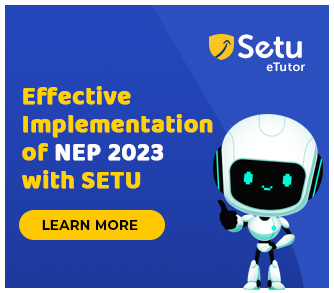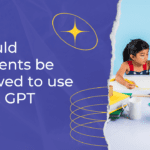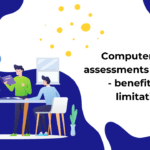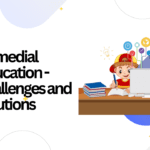Table of contents
- NEP 2020 Assessment Reforms
- Transforming the school education system
- Transformation in the progress card
- Transformation in conducting the public examinations
- National Assessment Centre: Empowering Education through PARAKH
- National Testing Agency (NTA): Redefining Assessment Norms for Academic Success
- Nurturance of Talent
- How SETU synergizes with NEP's 2020 assessment reforms?
- Conclusion
Embracing a transformative approach to the assessment software that promotes the holistic development of students should be the primary concern of school education. Now it’s time for the schools to shift from traditional methods focusing solely on rote memorization and move towards competency-based learning.
The National Education Policy (NEP) recognizes the significance of this shift and proposes an annual school examination for all students in grades 3, 5, and 8. This examination aims to assess students’ understanding of core concepts, application of knowledge, and higher-order thinking skills. By mapping their progress throughout the school year, educators can gain valuable insights into students’ strengths and areas for improvement.
This progressive approach to assessment software fosters a more comprehensive evaluation of students’ abilities and provides a platform for personalized learning. It encourages critical thinking, problem-solving, and creativity, empowering students to become lifelong learners.
National Curriculum Frameworks (NCFs)have been instrumental in shaping education by implementing key recommendations from Committees, Commissions, and policy documents. They provide actionable strategies for improving teaching, learning, and assessment software methodologies as per NEP 2020 vision.
NEP 2020 Assessment Reforms
NEP 2020 paves the way for a transformative approach to learning assessments. It emphasizes the importance of:
- Regular, formative and competency-based assessment software.
- Testing higher-order skills such as analysis, critical thinking and conceptual clarity.
- Promoting learning and holistic development of students.
- Continuously revising teaching and learning processes to optimize learning.
Transforming the school education system
The Nep 2020 recognizes the importance of tracking student progress and planning improvements in the education system in the following way.
- All students are required to take the school exams in grades 3, 5, and 8 to track the student progress during the school years, thereby helping parents, teachers, students and the school system.
- These exams will test the basic learning outcomes of the student along with higher-order skills and relevant application knowledge.
- The results obtained from those exams are meant for the development and improvement of the school education system and continuous monitoring of the student learning outcomes only.
- These examinations won’t be utilized to assess or judge any particular student.
Transformation in the progress card
The key changes in the Progress card are:
- The Progress card will serve as a comprehensive and multi-dimensional assessment software that provides a holistic view of each learner’s progress and unique qualities across all domains.
- States/UTs will completely redesign the progress card under guidance from the proposed National Assessment Centre, NCERT, and SCERTs.
- It includes self-assessments and peer assessments where students can reflect on their learning, identify growth areas, and empathize with peers.
- Utilize the progress card to facilitate meaningful communication between teachers and parents.
- It comes with parent-teacher feedback and suggestions for supporting the student’s holistic development inside and outside the classroom.
Transformation in conducting the public examinations
The secondary board exams and entrance examinations are crucial for the students in taking coaching and preparing for the examinations.
NEP 2020 suggests a few changes in conducting the exams. They are:
- Redesigning the board exams that encourages holistic development of students.
- Flexibility in choosing the subject of their interests.
- Tests primarily core capacities/ competencies rather than content memorization.
- Best of two attempts: One for the main exam and the other for improvement.
- The mode of exams will be annual/semester/modular, which reduces pressure on students.
- Redesigning of question papers in two parts: one is objective with MCQ, and the other is descriptive.
National Assessment Centre: Empowering Education through PARAKH
The PARAKH (Performance Assessment, Review, and Analysis of Knowledge for Holistic Development) National Assessment Software Centre is India’s newly established assessment software. It was set up by the Central Board of Secondary Education (CBSE) to develop and implement a standardized assessment software for students in grades 9 and 10.
The key objectives of PARAKH are:
- To move away from the traditional rote memorization approach and encourage deeper understanding, conceptual clarity, and the development of 21st-century skills.
- It helps share best practices among school boards, promoting collaboration and innovation in assessment software.
- Guides the State Achievement Survey (SAS) and oversees the National Achievement Survey (NAS) implementation to analyze the learning outcomes.
- Develops comprehensive norms, standards, and guidelines for student assessment software and evaluation.
- Advises school education boards on new assessment patterns and the latest research in the field.
National Testing Agency (NTA): Redefining Assessment Software Norms for Academic Success
The National Testing Agency(NTA) operates under the Ministry of Education and plays a crucial role in ensuring fair, transparent, and efficient conduct of the examinations.
The aim objectives of NTA are:
- It serves as a premier testing organization responsible for conducting entrance examinations for admission to various higher education institutions in India.
- The National Testing Agency (NTA) intends to offer high-quality common subject examinations in science, humanities, languages, and vocational topics and a high-quality common aptitude test at least twice annually.
- NTA adherence to standardized procedures and guidelines to maintain the integrity and fairness of the examination process.
- The NTA develops question papers that align with the prescribed syllabus and examination pattern.
- Explores new methodologies, technologies, and Assessment Software practices to improve the quality and reliability of entrance examinations.
- The National Testing Agency (NTA) can alleviate the burden on students, universities, colleges, and the education system.
- Universities can streamline their admission processes and reduce the duplication of efforts in conducting their entrance exams.
Nurturance of Talent
Nurturing of talent refers to the deliberate and systematic efforts to identify, develop, and support the unique abilities and potential of individuals in various domains, such as academics, arts, sports, leadership, and other areas of interest.
The nurturance of talent aims:
- Allows individual growth and fulfillment.
- Leads to the development of a diverse range of skill sets.
- Able to tackle complex challenges from multiple perspectives.
- Commitment to lifelong learning and continuous improvement.
How SETU synergizes with NEP's 2020 assessment reforms?
Our platform SETU is designed to modernize and transform the Assessment Software practices to align with the objectives and principles of NEP 2020. They are:
- Shift focus from rote memorization to a holistic assessment approach.
- Practical understanding of the application through Competency-Based learning.
- Inclusive evaluation of students’ progress through formative assessments, projects, portfolios, group discussions, and interactive quizzes.
- Continuous learning and monitoring process to identify areas for improvement.
- Reduced teacher work pressure.
Conclusion:
Assessments play a crucial role in student development as they provide valuable insights into their progress and areas of improvement. I t’s important for schools to assess their specific needs, budget, and infrastructure while selecting assessment software. Our AI-assisted Assessment Software SETU is already in sync with the NEP 2020, provides user-friendly interfaces, and can easily integrate with the existing tools used by the school ecosystem.











Leave a reply